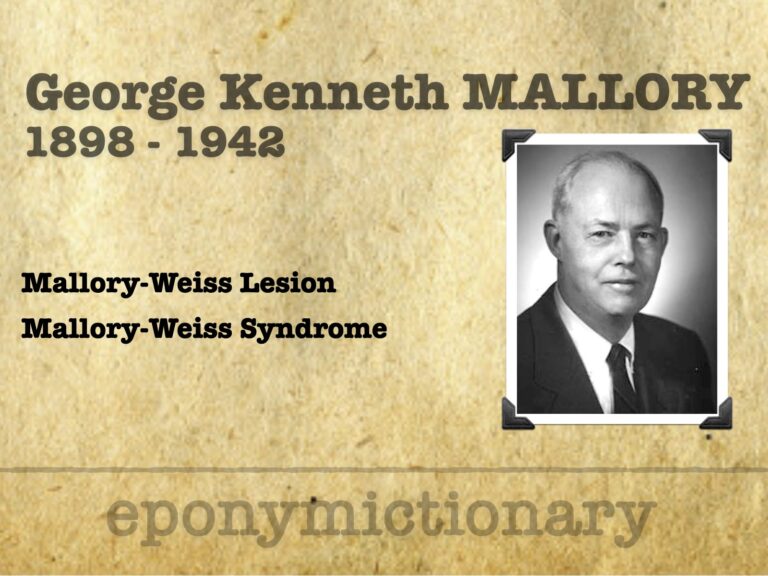
George Mallory
George Kenneth Mallory (1900–1986), American pathologist, co-described Mallory–Weiss syndrome and advanced cardiac, renal, and hepatic pathology

George Kenneth Mallory (1900–1986), American pathologist, co-described Mallory–Weiss syndrome and advanced cardiac, renal, and hepatic pathology

Philip R. Allison (1907–1974), pioneering thoracic surgeon, defined reflux oesophagitis, advanced Barrett’s oesophagus, and led Oxford surgery
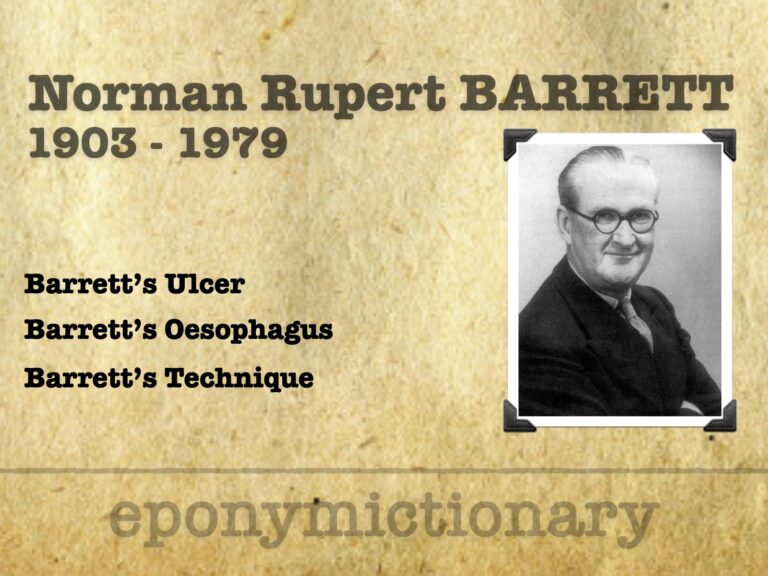
Norman Barrett (1903–1979), thoracic surgeon, pioneer of oesophageal surgery, first repair of Boerhaave’s syndrome, and namesake of Barrett’s oesophagus.
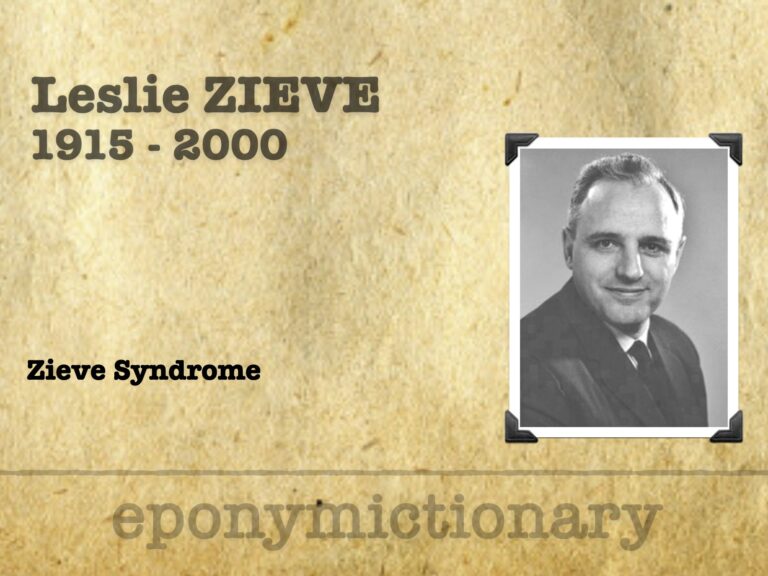
Leslie Zieve (1915–2000), American hepatologist; Zieve syndrome: jaundice, haemolysis, and hyperlipidaemia in fatty liver disease.

Rigler triad; Imaging findings in patients with gallstone ileus with an ectopic gallstone causing small bowel obstruction, and pneumobilia
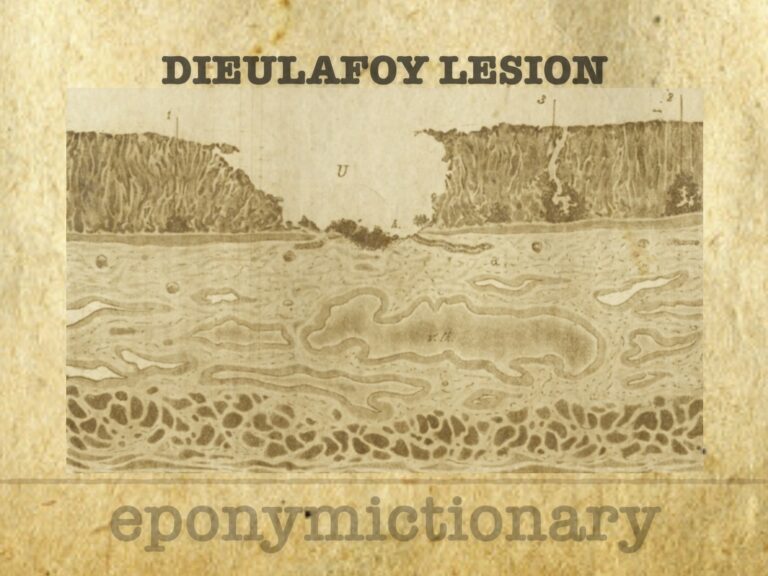
Dieulafoy’s lesion: minute gastric erosion over a large arteriole, causing massive GI bleeding. First defined as exulceratio simplex in 1898.
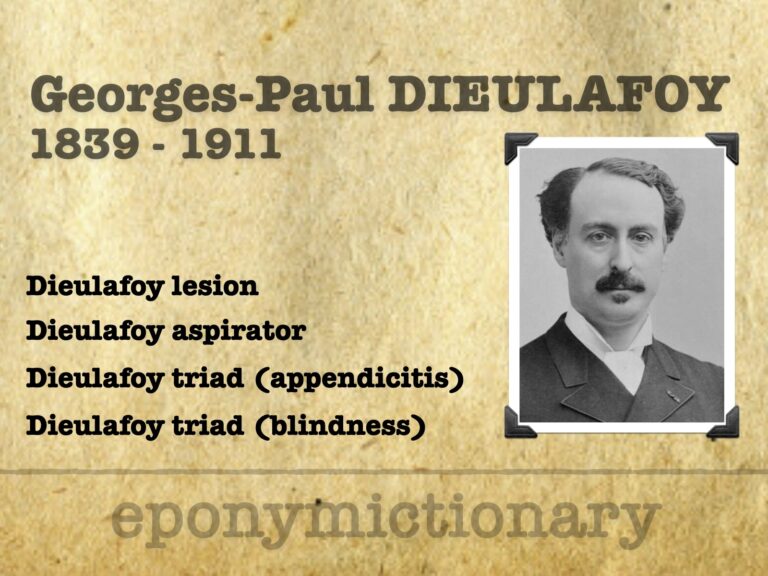
Georges Dieulafoy (1839–1911), French physician, pioneer of gastroenterology; remembered for Dieulafoy lesion, triad(s), and aspirator

Scottish surgeon T.K. Dalziel (1861–1924) early description of Crohn’s disease, led children’s surgery in Glasgow, and was knighted for WWI medical service.
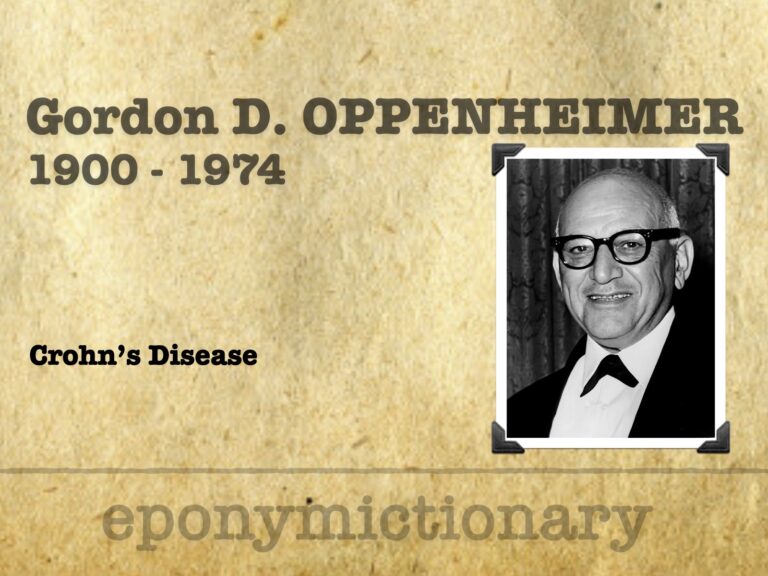
Gordon David Oppenheimer (1900 - 1974) was an American surgeon and urologist.
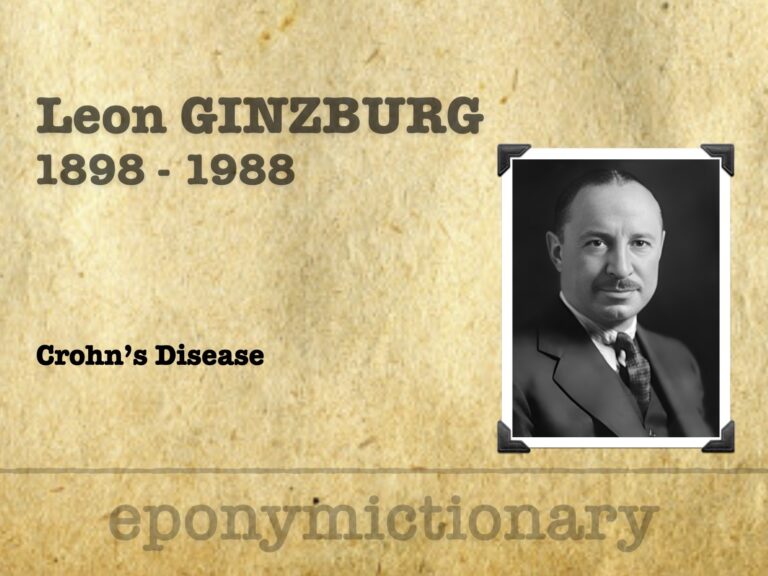
Leon Ginzburg (1898–1988), American surgeon Mount Sinai and Beth Israel; co-describer of regional ileitis (Crohn’s disease).
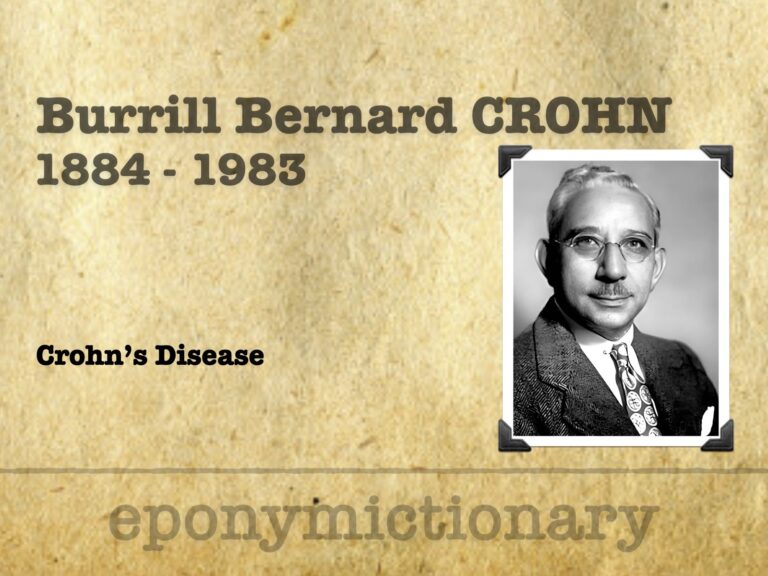
Burrill B. Crohn (1884–1983), pioneering gastroenterologist and namesake of Crohn’s disease. Discover his life, work, and medical legacy
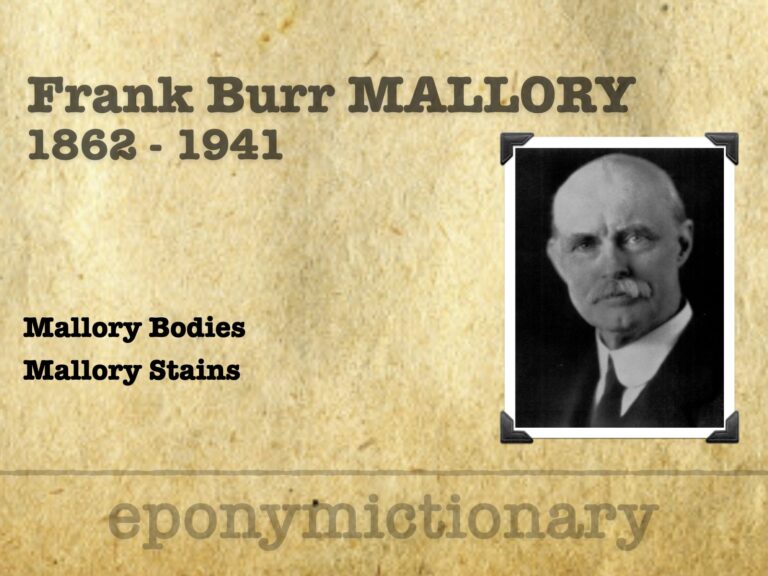
Frank Burr Mallory (1862–1941), American pathologist; pioneer of histological stains, Mallory bodies in alcoholic liver disease